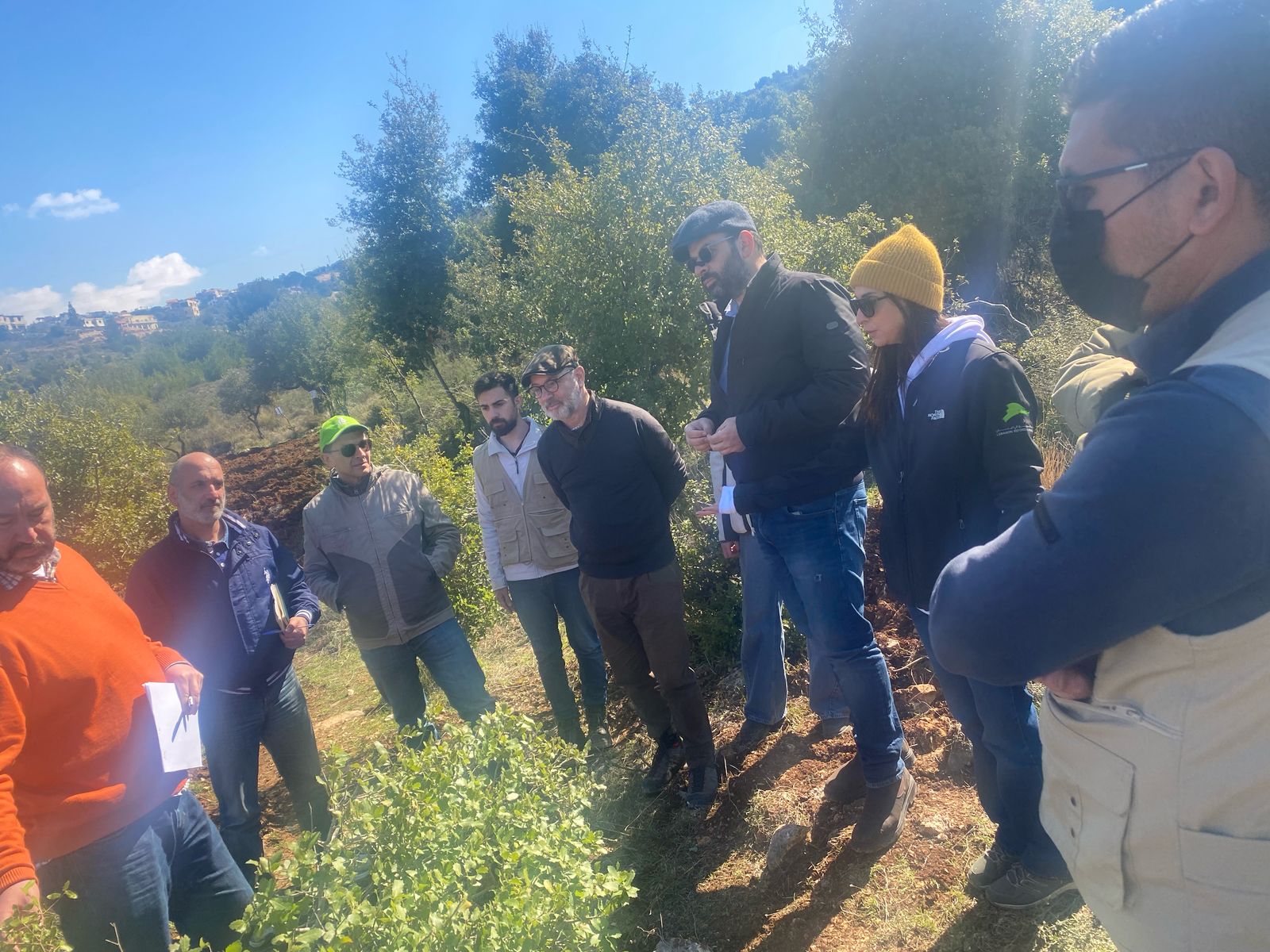
ILO News (Beirut) –The ILO Employment-Intensive Infrastructure Programme (EIIP) in Lebanon, in partnership with the German Government through KfW Development Bank, is supporting the Green Plan under the Ministry of Agriculture’s Greening the Lands Project which assists vulnerable farmers in Lebanon through provision of agricultural infrastructure. In this intervention, the ILO also works closely with the Lebanon Reforestation Initiative (LRI), an NGO that focuses on conservation, reforestation, and awareness-raising on biodiversity, ecosystems, and the impacts of climate change. A joint delegation conducted a field visit across multiple EIIP project sites in North Lebanon. These projects, improve agricultural productivity and climate resilience, also provide essential employment opportunities for local workers.
The interventions, focused on the regions of Kfarhata,Rechdebine and Btorram, develop sustainable infrastructure, enhance water conservation, reclaim agricultural land, and construct protective measures like terrace walls and fencing, all while providing job opportunities that strengthen local economies and promote decent work principles.
In Kfarhata, the delegation examined a water reservoir designed to improve water conservation and irrigation efficiency for local farmers. By providing a reliable water source, this initiative mitigates the effects of water scarcity, enabling farmers to cultivate their land more effectively. The project has also created job opportunities for local workers involved in construction and maintenance, ensuring sustainable agricultural practices while providing crucial income for workers and their families.
The visit continued to Rechdebine, where EIIP’s land reclamation efforts and terrace wall construction were evaluated. These walls level the fields and prevent soil erosion, making the land suitable for cultivation and preventing soil degradation. This initiative not only transforms unproductive land into viable agricultural fields but also generates much-needed employment for local workers engaged in construction activities, reinforcing their role in the region’s economic development.
In Btorram, the delegation observed completed land reclamation and fencing work aimed at expanding arable land. By clearing and preparing previously unusable plots for farming, local farmers now have increased agricultural output. Newly built boundary stone walls protect cultivated land from encroachment and livestock damage, ensuring long-term sustainability. This intervention has also created employment for local workers, furthering EIIP’s commitment to decent work, economic empowerment, and improving workers’ livelihoods.

During the field visit to the Deddeh Municipal Building, the delegation assessed the rehabilitation and expansion of the town’s main administrative building, which serves 17,000 Lebanese and 5,000Syrians. The project, which addresses structural damage, plumbing and electricity issues, and space limitations, has generated 10,546 worker days. Following ILO’s Decent Work principles and Local Resource-Based Technology(LRBT) methods, this initiative not only improves public infrastructure but also ensures fair wages, safe working conditions, and sustainable job opportunities for local workers, emphasizing their essential role in the community's well-being.
Through the Employment-Intensive Infrastructure Programme (EIIP) in Lebanon, funded by the German Government through KfW Development Bank, the ILO is actively promoting public infrastructure development for vulnerable communities while prioritizing local employment opportunities.
In collaboration with the Green Plan, and the Lebanon Reforestation Initiative (LRI), these initiatives not only enhance community resilience but also support environmental sustainability and climate change adaptation. The Green Plan and LRI play a crucial role in implementing projects that conserve and restore Lebanon’s biodiversity and ecosystems, contributing to the overall success of these infrastructure projects.
These projects integrate sustainable development with economic empowerment, ensuring that rural communities benefit from improved agricultural productivity, environmental conservation, and increased economic stability. Most importantly, they recognize and value the critical contributions of workers, ensuring their rights, safety, and income security. The field visit reaffirmed the commitment of the ILO, KfW, the Green Plan, and LRI to fostering long-term sustainability and economic growth in Lebanon’s rural regions through employment-intensive interventions that prioritize the dignity and welfare of workers.





.svg)